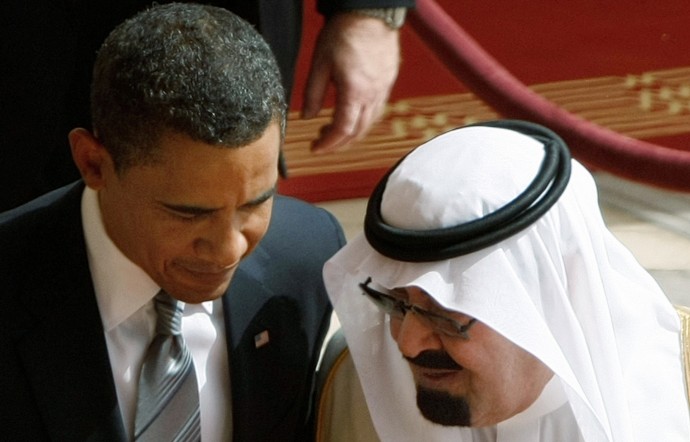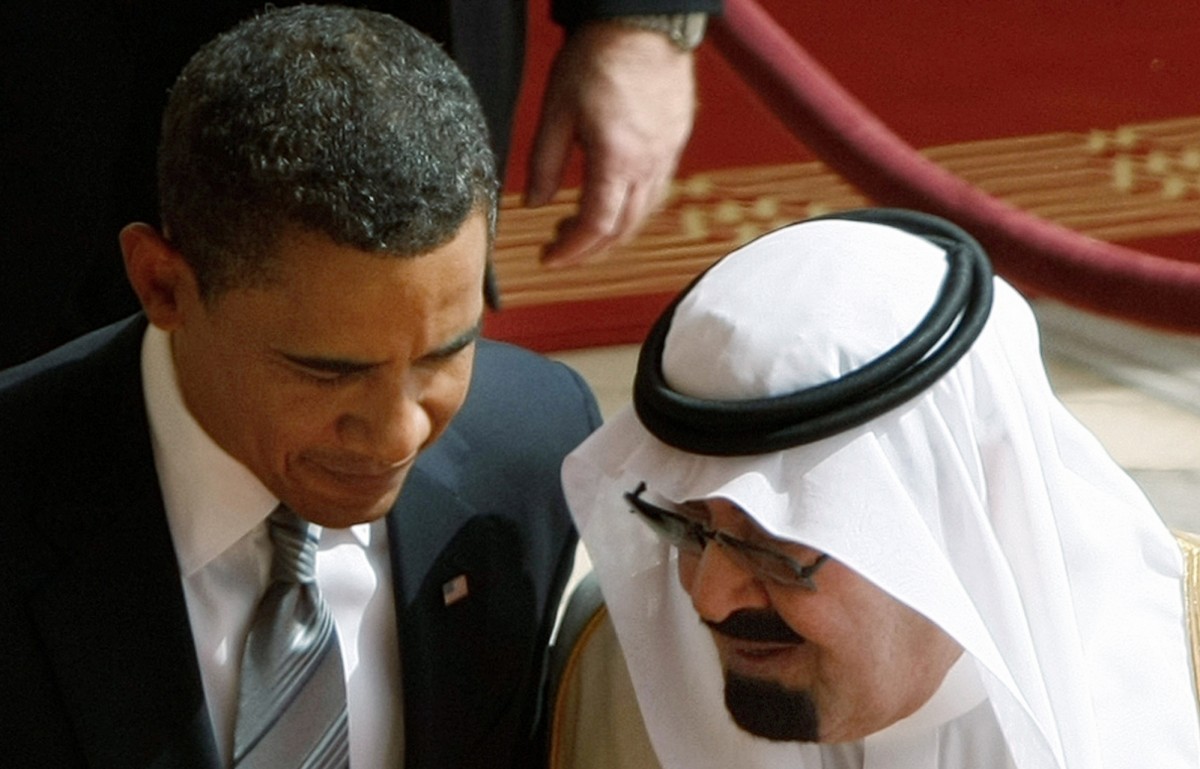
(MintPress)-As the Gulf states are gearing up to funnel millions of dollars to Syrian rebels in their fight against the brutal Assad regime, several under-funded anti-government protests continue to erupt along the shores of the Arabian Peninsula, calling attention to the hypocrisy of the widespread support for anti-government protests in some countries while calls for freedom elsewhere in the Middle East are ignored.
The Gulf states are the driving force behind a broader group of over 70 countries, including the United States, that have pledged to finance members of the Syrian opposition after the Friends of the Syrian People summit met last week in Turkey.
Participants confirmed the Gulf plan on condition of anonymity to the Associated Press, saying that details were still being worked out but it would include several million dollars a month. The funds are to be earmarked for salaries, and it is still “not clear whether there would be any effort to prevent the diversion of money to weapons purchases.”
Saudi Arabia and Qatar have been particularly vocal regarding their interests in sending military aid directly to the rebels. “The arming of the opposition is a duty, I think, because it cannot defend itself except with weapons,” Prince Saud al Faisal said during a joint news conference with U.S. Secretary of State Hillary Clinton.
Given the complex makeup of the Syrian opposition, the idea has not garnered significant support. However, many analysts believe that several Gulf states have been secretly funneling weapons to the Syrian rebels for months.
“My fear is that it will be a turning point, but not for the rebels,” said Fawaz Gerges, Director of the Middle East Center at the London School of Economics, who believes the conflict could become a “war by proxy,” the Associated Press reported. “No one knows what the cost of such a conflict will be on Syria and the region,” he said.
Hypocrisy of Gulf States
Iraqi Prime Minister Nouri al-Maliki expressed similar concerns last week. “Based on our experience in Iraq, the option to arm either side of the conflict will lead to a regional and international proxy war in Syria,” said Maliki.
The US-appointed Prime Minister of Iraq warned that, “any arming [of Syrian rebels] and the process to overthrow the Assad regime,” such as the proposal by Qatar and Saudi to arm Syrian rebels, “will leave a greater crisis in the region.”
In response, Tariq al-Homayed, the editor of Asharq al-Awsat, published an article in the Saudi owned pan-Arab daily, saying that Gulf states should boycott Maliki and his government. “Boycott him to prevent the emergence of a new Saddam or another Bashar,” wrote Homayed, calling for the “punishment of all who stand with the tyrant of Damascus, first and foremost Maliki’s government.”
Other Saudi newspapers followed suit. Saudi’s Al-Riyadh asked, “Is Maliki a voice for Iran or the ruler of Iraq?” The editorial noted that “the Syrian people revolted against injustices similar to those suffered by Iraq under Saddam.”
Saudi media sources failed to acknowledge, however, the injustices and suffering that many of its own people are facing against what could be called by some opposition groups as the ‘tyrant of Riyadh.’ Despite the lack of media coverage, anti-government protests are still going on in Saudi Arabia over a year after demonstrations began.
The bulk of Saudi Arabia’s opposition movement is located in the oil-rich eastern province heavily populated by Shia Muslims that have historically been oppressed and barred from political activity. Yet the opposition movement exists throughout other parts of the country including the southwestern region of Jinaz where a man recently set himself on fire, mimicking the self-immolation of the Tunisian man whose suicide sparked the beginning of the Arab Spring last year.
A fresh wave of demonstrations erupted in the eastern city of Qatif in March, calling for freedom and an end to economic and religious discrimination one month after protesters demanded justice for a human rights activist shot dead by Saudi regime forces.
Gulf leaders have tried unsuccessfully to quiet dissent at home by offering minimal concessions through civil society programs. In Saudi Arabia alone, the Associated Press reports that nearly $100 billion has been earmarked to boost services and jobs. Yet the government’s attempts to create services and jobs has proven unsuccessful as the brutal crackdown on protesters continues.
Meanwhile, in an obvious display of hypocrisy, Saudi Arabia continues to boast the importance of arming the Syrian opposition against the brutal Assad regime. Saudi Arabia believes Iran, Syria’s greatest regional ally, instigated the anti-government protests in its own country and hopes that supporting the Syrian uprising will weaken Iran’s influence in the region.
Saudi Arabia has also taken hypocritical steps throughout the Arab Spring by sticking with Egypt’s Hosni Mubarak and the Bahraini Royal Family while simultaneously siding against Libya’s Moammar Gadhafi.
Complacency Benefits US Agenda
Although the United States has expressed concerns with Saudi Arabia’s desire to provide weapons directly to the Syrian opposition, Secretary of State Hillary Clinton has agreed to send an additional $12 million in monetary support to the Syrian people, while remaining silent in regards to whether financial support should be given to opposition groups in the Gulf.
Instead of seizing the momentum leading up to the Friends of Syria meeting as an opportunity to voice concern for all those struggling for freedom in the Middle East, including the Gulf region, Clinton instead stressed Washington’s unfaltering commitment to the security of the Sunni Muslim-led Gulf Arab monarchies.
Directly before flying to Istanbul to address the Friends of the Syrian People meeting, Clinton told the Gulf Cooperation Council (GCC) forum that “The commitment of the United States to the people and the nations of the Gulf is rock-solid and unwavering. Our strong bilateral relationships are a rock of stability in the region.”
Clinton announced Washington’s plans to take “practical and specific steps to strengthen our mutual security, such as helping our militaries improve interoperability, cooperate on maritime security and missile defense, and coordinate responses to crises.”
The Secretary of State also emphasized the perceived threat of Iran in its attempts to upset regional security, “including through its support for the Assad regime’s murderous campaign in Syria, threats against the freedom of navigation in the region, and interference in Yemen.”
No mention was made at the forum about Saudi Arabia’s oppressive tactics towards protestors or the controversy surrounding the massive protests going on in Bahrain and the global campaigns emerging in solidarity with a Bahraini anti-government protester who has been on a hunger strike in prison for over 58 days.
US support for the Gulf should come as no surprise considering the US dependency on oil, especially amid the controversy over oil prices in the current election season. Additionally, the US has a desire to support the Gulf countries, Saudi Arabia in particular, in a regional power struggle against the perceived threat of Iran.
If the Obama administration were too critical of the Saudi and Bahraini regimes, the United States would risk losing strategic alliances in the Middle East, including a strategically located naval base near the Strait of Hormuz, at a time when speculation about an attack on Iran is at an all time high.
Therefore, the United States will continue to selectively support calls for freedom in Syria while suppressing the demands of protesters across the Gulf because it is not willing to jeopardize its diplomatic clout in the region by supporting protesters that have been accused by America’s strongest Arab ally, Saudi Arabia, of being supported by America’s worst regional ally, Iran.


